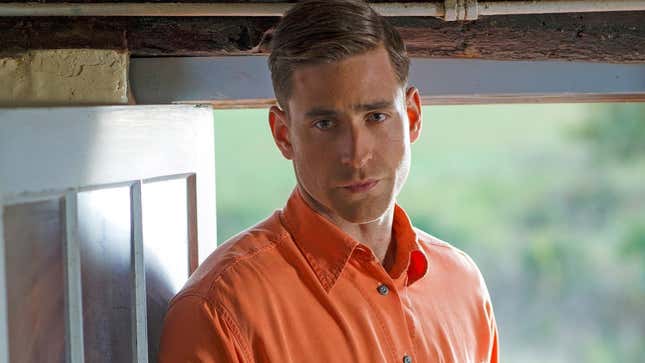They made the tedium a bit too real

It also made no sense to seemingly establish a very unique bond between sisters that somehow disappeared or didn’t matter after Viola’s marriage. As always, the details that could matter are given short shrift or are endlessly shallow, and the details we could grasp in 10 seconds (“viola felt left out and omitted and…
Didn’t they say in an episode that the Wingreaves didn’t use Bly as a regular home? It wasn’t until the parents died that Henry sent the children to live there all the time.
Fresh from episode 1's Wee Britain-esque depiction of London, and episode 6's “math” discussion, we now have a character referring to the “province of Hampshire” when it should be the county of.
To the point about the Viola storyline being ableist, I could certainly see it. We get a few shots of longing glances suggesting Perdita wants Viola’s husband, but the dude has just left for an overseas business trip, and Viola is an unpleasant person. So when we’re told that Perdita thought “mercy” when she murdered…
Nuclear families where people move out once they grow to be adults are relatively novel. I suppose it is an open question why she didn’t marry. Perhaps since she didn’t have property of her own fewer suitors were interested.
I said to myself, “the architecture nerds will not be happy about this”, and I was right.
Disagree. Also she doesn’t walk “every night”
“What in the 17th-century hell are they cutting Viola’s arm for”
Part of why I liked Hill House so much was there were so many random ghosts in the house who had history there but they explicitly didn’t explain it. Showing the origins of most of the ghosts here really killed any spookyness
I wasn’t massive on this one either, for a lot of the stated reasons and some others. It really could have been safely half the length it was (we see the cliffhanger of Viola grabbing Dani no less than three times in two episodes! I get it’s a good scare, but c’mon, really?!). The basic explanation of Viola’s gravity…
This episode lost me when they expected me to believe that the massive, clearly Edwardian steel-framed house was supposed to be a Tudor-era manor. Those thin walls! Those huge rooms! Those tiny fireplaces!
Hannah’s story is the most tragic for me.

That’s a good and fair point about expectations that we WOULD find out (and see in flashbacks, etc) more of Rebecca. It’s not remotely relevant really, since the characters and works are ultimately so different, but Miss Jessel is much less focused on than Peter in the novel as well (of course as I mentioned so is…
Lots of good observations in this review—and, I’m loathe to admit, it has helped clarify some things that probably should have been obvious to me. (For example, I was kinda confused if it was Peter in Rebecca’s body when she drowned—I’ll just blame my cluelessness on the fact that I’ve been going through these…
The Lady of the Lake got them mid-article
apparently mother knocked and she jumped again.
“These things contextualize his behavior without excusing it.” Very well put. They did a great job of showing how Peter rationalized all his selfish abusive actions without sanctioning those actions. A lot of shows mess that up.
Don’t finish their damn sentences!
only kill people who

